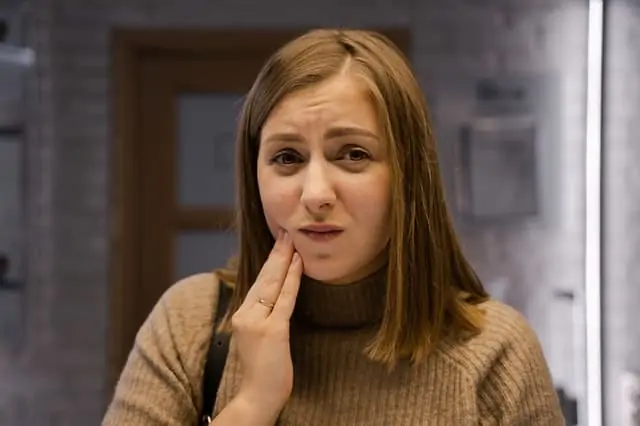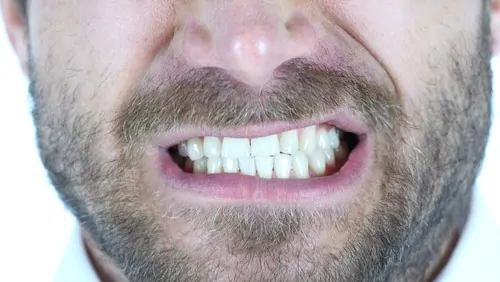How To Handle Dental Emergencies

Dental emergencies can occur unexpectedly, causing pain, discomfort, and anxiety. Knowing how to handle these situations promptly and effectively is crucial to minimize pain, prevent further damage, and ensure timely care. In this comprehensive guide, your dentist in Douglasville explores common dental emergencies and provides step-by-step instructions on how to handle them.
Contact Your Dentist
Different types of dental emergencies require different kinds of care, so it’s important to contact your dentist in Douglasville quickly if you experience a dental emergency so they can diagnose and properly treat your specific needs. While there are steps you can take to help reduce the risk of additional damage and temporarily relieve discomfort, you should always let your dentist know if you have a dental emergency.
Toothaches
Toothaches can pop up out of nowhere and can cause mild discomfort or even excruciating pain. Here’s what you can do:
- Rinse your mouth with warm saltwater to alleviate pain and reduce inflammation.
- Gently floss around the affected tooth to remove any trapped food particles that may be causing the pain.
- Take over-the-counter pain relievers as directed, but avoid placing aspirin directly on the tooth or gums.
- Apply a cotton ball soaked with clove oil to the area. Clove oil contains a natural anesthetic and antibacterial that helps reduce inflammation.
Knocked-Out Tooth
If a tooth gets knocked out, immediate action is crucial for the best chance of saving it:
- Handle the tooth by the crown (the top part) and avoid touching the root.
- Rinse the tooth gently with water if it’s dirty, but do not scrub or remove any attached tissues.
- Try to reinsert the tooth into its socket, making sure it’s facing the correct way. Apply gentle pressure to hold it in place.
- If you cannot reinsert the tooth, place it in a container of milk or saliva and seek dental assistance immediately. Time is of the essence when it comes to saving a knocked-out tooth.
Broken or Chipped Tooth
If you break or chip a tooth, follow these steps:
- Rinse your mouth with warm water to clean the area.
- Save any broken pieces of the tooth.
- If there’s bleeding, apply gentle pressure with a clean gauze or cloth.
- Your dentist in Douglasville will evaluate the extent of the damage and recommend the appropriate treatment, which may include dental bonding, a crown, or other restorative dentistry options.
Lost Filling or Crown
Losing a filling or crown can be uncomfortable, but temporary solutions are available:
- Clean the affected tooth and apply dental cement or temporary dental filling material, available at most pharmacies.
- Avoid chewing on the affected side until you can see your dentist for a permanent solution
Soft Tissue Injuries
Injuries to the lips, gums, cheeks, or tongue can result in bleeding and discomfort. Here’s what to do:
- Rinse your mouth with warm saltwater to clean the area.
- Apply gentle pressure with a clean gauze or cloth to control bleeding.
- If bleeding persists or the injury is severe, seek immediate medical attention or visit the emergency room.
Handling dental emergencies requires prompt action and appropriate care. By following the steps outlined in this comprehensive guide, you can effectively manage dental emergencies. However, it’s essential to remember that these steps are temporary measures, and seeking professional dental care from your dentist as soon as possible is crucial for proper diagnosis and treatment.
Why Do My Teeth Hurt?

Pain in your teeth is such a unique yet unpleasant feeling. The zings and throbbing that come along with a toothache are enough to make you miserable. We get it, and even though we don’t wish toothaches on anyone, the truth is, they happen. But sometimes the hardest part of treating a toothache is finding out what’s causing the pain in the first place. That’s where your dentist in Douglasville comes in.
Common Reasons Why Your Teeth Hurt
A toothache is often different from other pains we experience throughout our bodies. Most of the time, we can’t see that anything is wrong with our teeth, but we sure can feel it. While it’s important to have your dentist properly diagnose the source of a toothache, here are some of the most common reasons behind tooth pain.
- Cavity
A cavity is essentially a hole in the tooth. If left untreated over time, the cavity will become larger. If the cavity gets so big that it gets too close to the nerves, you will feel it. Cavities can usually be fixed through fillings, but cavities that are too big and too deep may require a root canal.
- Abscess
Caused by a bacterial infection, an abscess is a pocket of pus that can pop up on different areas of our mouths. The pain is usually a throbbing type and it can move into the ears and jaw. Sometimes, an abscess also causes facial swelling or a bad taste in your mouth.
- Broken Tooth
Believe it or not, you can break or chip a tooth and not know it, that is until you feel it. A broken or chipped tooth can expose the nerves and cause pain.
- Clenching or Grinding
Habitually clenching your teeth when you’re stressed out or grinding your teeth at night can cause tooth pain. These habits can also lead to broken teeth as well as jaw pain.
- Gum Disease
It can be difficult to tell the difference between gum pain and tooth pain, and sometimes what we think is a toothache is actually a sign of gum disease. If not treated, gum disease can progress into more serious forms and increase pain, cause tooth loss, and even lead to other problems throughout the body.
The best way to find out why your teeth hurt is to schedule an appointment with your dentist in Douglasville. We’ll perform an in-depth examination and take any x-rays we may need to find out once and for all what’s causing your tooth pain. After we know the culprit, we’ll know exactly how to fix it.
What To Do For a Toothache
While you’re waiting for your dental appointment, there are several at-home toothache remedies you can try such as:
- Rinsing With Salt Water – Mix warm water with salt, take swig, swish, spit, and repeat. This can dry out any fluid that may be putting pressure on your nerves and ease the pain. You can repeat this several times throughout the day.
- Applying Ice – There’s a reason doctors recommend using ice to treat any injury — it works! Ice reduces inflammation and, in turn, can relieve any pressure on the nerves. Apply an ice pack wrapped in a towel directly to the outside of your cheek next to the painful area.
- Taking Anti-inflammatories – Another way to reduce inflammation is to take over-the-counter anti-inflammatory medicine. Take these as directed and if your health history allows, and never apply an anti-inflammatory medication directly on your gums or teeth.
- Using Anesthetic – The next best thing to getting your toothache treated is to temporarily numb the area through the use of an anesthetic. Pharmacies and grocery stores carry over-the-counter oral anesthetics for this exact purpose.
Depending on what’s causing your tooth pain, some of these tips may work better than others. Try a few and find what gives you the most relief. But remember, these remedies are temporary. It’s still important to get a proper diagnosis and treatment from your dentist in Douglasville.
How Stress Can Affect Oral Health

Stress can be caused by any number of things, such as work and family. But in these uncertain times, it’s only natural to experience elevated levels of stress. Too much stress can have negative effects on bodies such as headaches, stomachaches, increased heart rate, and overall feelings of anxiety. But your dentist in Douglasville also wants you to know that high levels of stress can also affect your oral health. Let’s examine a few ways in which this happens, as well as what you can do to help protect yourself.
- Jaw Pain & Discomfort
Your jaw joint, or your temporomandibular joint (TMJ), is one of the main areas where stress can affect your oral health. When we’re overly stressed, we tend to have a subconscious response that causes us to clench or grind our teeth repeatedly. This constant pressure on both the teeth and jaw muscles can lead to jaw pain as well as damage to teeth. Over time, if the clenching and grinding continue, you may develop TMJ disorder. This often painful condition is usually accompanied by jaw popping or clicking or even a locked jaw. It’s best to see your dentist in Douglasville when you start experiencing these symptoms.* - Canker Sores
Many of us have experienced the discomfort of the canker sore or other similar sores in our mouths. These sores often resemble ulcers and can be white or red spots or lines. While there is no definite cause of a canker sore, studies conducted by the Academy of General Dentistry support the hypothesis that canker sores can occur more often in those who undergo prolonged periods of stress. Canker sores can be annoying and a little bit painful, but they aren’t contagious. - Gum Disease
One of the most common dental diseases that affect Americans is gum disease. Typically, the cause of gum disease is poor dental hygiene or smoking. But there have been recent studies that suggest a connection between stress and gum disease. It’s also important to know that this oral health disease doesn’t only increase the risk of problems in the mouth, such as tooth loss, it can also contribute to problems throughout the body. Gum disease has been linked to overall health conditions such as heart disease, respiratory disease, and some cancers. Some signs of gum disease include bleeding while brushing or flossing, chronic bad breath, or swollen gums. If you notice any of these, call your dentist in Douglasville.*
Reduce Your Stress, Reduce Your Risk
Reducing stress levels can go a long way in protecting both your overall health as well as your oral health. While everyone is different and stress-management techniques can vary in effectiveness from person-to-person, there are a few trusted tips health professionals recommend.
- Sleep. Getting enough sleep every night can help our bodies recover and lower stress. If you have trouble falling asleep, try to avoid blue light an hour before bed, listen to calming music or sounds, and follow a regular routine of waking up the same time every day.
- Exercise. Whether you decide to go for a walk, dust off your yoga mat, or follow a workout video, make sure you do some sort of exercise every day. Physical activity can release endorphins and can decrease stress.
- Breathe. Simply focusing on your breathing or practicing daily meditation can do wonders in lowering blood pressure as well as stress. Take a few minutes every day to focus on deep breathing exercises or try out an app that guides you through a meditation session.
During these uncertain times, we’re bound to feel stressed out occasionally. Make sure you focus on identifying when you’re feeling this way and practice lowering stress levels to help keep your body, mind, and oral health in good shape.
*At the time of publishing, the ADA recommends that all preventive dental appointments and non-emergency consultations be postponed. Please check with your local regulations.
What’s Considered a Dental Emergency?

There’s a lot of uncertainty in the world today, including whether or not you should see your dentist in Douglasville. We’re here to help. As of April 1, 2020, the American Dental Association (ADA) has recommended that dentists across the country suspend all routine dental care to help reduce the spread of COVID-19 until at least April 30th. However, dentists may still be seeing patients who are experiencing dental emergencies. But what, exactly, is considered a dental emergency?
Defining Dental Emergencies
The ADA defines dental emergencies as “potentially life-threatening and require immediate treatment to stop ongoing tissue bleeding [or to] alleviate severe pain or infection.” Some signs indicating that you may be experiencing a dental emergency include:
- Bleeding that doesn’t stop
- Pain or swelling in or around your mouth
- Tooth or jaw pain
- Broken or knocked-out tooth
- Gum infection with pain and swelling
The ADA also lists “urgent” dental care as a secondary set of symptoms that may require early intervention by a dentist. Dental problems that are classified as urgent include:
- Severe dental pain caused by pulpal inflammation
- Third-molar pain
- Tooth fractures with pain or resulting in soft tissue trauma
- Post-op complications such as dry socket
- Abscess or localized bacterial infection with swelling
- Dental trauma that results in a lost tooth
- Lost or broken temporary restoration or if a restoration is irritating the gum tissue
- Cavities or decay that cause pain
It’s important to note that these lists do not include every possible situation of a dental emergency or urgent dental need. The best thing to do if you think you’re experiencing a dental emergency is to call your dentist in Douglasville to determine the best course of action.
What Can Wait?
There are several types of dental treatments that are not considered emergencies and should not warrant an immediate visit to the dental office. Non-emergency dental care includes, but is not limited to:
- Routine exams, cleanings, x-rays
- Cosmetic dentistry consultations or pre-scheduled treatments such as whitening
- Cavities that do not cause pain
- Extraction of teeth that are not painful
We understand that postponing your routine dental appointments may not be ideal, and while we’d love to see you, please help us and our entire community stay safe by staying at home.
*Please note, COVID-19 recommendations change regularly. Please refer to your local government for the most recent updates regarding dental care during this time.
Watch Out! These Are the Top 5 Most Dangerous Sports for Smiles

From kids to adults, there’s no shame in getting your game on. It’s a great way to get your daily exercise and spend time with friends or family. (And a little competition never hurt.)
With any sport, we run the risk of spraining an ankle or breaking a wrist. But you also run an even bigger danger of damaging your teeth. No one wants that! Especially your dentist in Douglasville.
Oral injuries from sports can range from a simple bump on the lip to requiring major dental surgery to repair a smile. (Hello, hockey players!) Over the years, we’ve seen a lot of broken, chipped teeth due to sports. Here are some of the most common culprits when it comes to wreaking havoc on smiles.
#1 – Football
As the gridiron game starts to heat up this month, you should know that it’s not so hot for your smile. You can probably imagine that any sport requiring tackling is going to cause an injury or two somewhere along the way. Make sure you and your kiddos are equipped with a custom mouthguard. They offer added protection to your bite when you’re fighting hard on the field. You don’t want tackles taking out your teeth.
#2 – Basketball
This court can be harsh on teeth. Not everyone wears mouthguards to protect their smile when playing basketball, but there are so many opportunities for damage to your teeth. This is true, especially as we grow older and continue in the sport. Just picture it: an elbow flailing here and there or a ball headed straight for the kisser. Basketball has the potential to do some serious damage to your teeth.
#3 – Martial Arts
Sports such as martial arts, mixed martial arts, boxing, and others can also spell trouble for your teeth. There’s no denying that these sports are full-contact and sometimes literally mean hitting someone directly in the face. Oral injury is occasionally imminent. But it can be avoidable if you remember to wear a custom mouthguard courtesy of your Douglasville dentist.
#4 – Stick and Bat Games
Think of a sport that you need a bat or a stick to play; we’ll wait. (Hint: Hockey, baseball, lacrosse, cricket, etc.) There’s an increased risk of getting smacked in the face with a stick or bat when you’re on the field or the ice with these sports. Just like all of the other sports we’ve discussed so far, it’s important to protect your smile with a mouthguard, especially if you’ve had extensive cosmetic work.
#5 – Skateboarding
Sure, Tony Hawk has a great smile. But we’re willing to bet he’s wiped out once or twice and his smile was right in the middle of it. Skateboarding can be fun and exhilarating just like a halfpipe, but if you’re not careful, your teeth can end up damaged. Chipped, broken, and knocked out teeth are common skateboarding injuries that we’ve seen (in children and parents).
At our Douglasville dental office, we’re all about preventing damage and decay to your teeth. After all, we want your smile to last a lifetime. However, if you find yourself with a dental emergency with a sports injury, know that you can always count on us. Please call our office to learn more about how we can accommodate you and your family should a dental emergency arise. We’re always here to help you feel better and have a healthy smile!
How to Stop a Toothache

Nobody ever wants to experience the pain and discomfort of a toothache. But the truth is, toothaches can happen to anyone, and they can come without warning. While the best way to treat a toothache is to see your dentist in Douglasville as quickly as you can, there are some things you can do before your appointment to help ease the pain.
5 Ways to Ease a Toothache
Toothache pain can come with a lot of discomfort. But this pain doesn’t necessarily stay only in the affected tooth. You can get a headache, your gums may pulse, and your entire mouth can feel the effects. Try these tips to help.
- Salt Water Rinse – Gently swish a solution of warm water and salt around your mouth a few times a day. This will help dry out fluid in the affected area and ease pressure on the nerves. Just make sure not to swallow the concoction.
- Ice – Just like any other injury, ice can help reduce inflammation and pressure on the nerves. Put an ice pack or a cold compress on the side of your face where the pain is coming from. Don’t put anything cold directly onto your skin. Use a cloth as a barrier.
- Anti-inflammatories – Over-the-counter anti-inflammatory medications may also ease toothache pain. Read the label on the bottle to determine how much should take. Remember, swallow the medication and do not apply it directly to the gums or tooth.
- Floss – If a piece of food stuck between two teeth may be causing the pain it’s ok to take a piece of floss and gently try to wiggle it out. The keyword here is gently. Too much pressure or roughly flossing can cause damage and more pain.
- Anesthetic – Many pharmacies and grocery stores carry over-the-counter oral anesthetics for tooth pain relief. They will temporary numb your mouth so you can get a little relief. However, these gels or liquids are not meant to be a permanent solution.
What Causes Toothaches Anyway?
There’s no one thing that can cause a toothache. Many things ranging from decay, cavities, or a dental injury may be to blame. While usually caused something minor which is easily treated at our Douglasville dental office, there are times when a toothache may be a sign of gum disease, infection, or chronic tooth grinding. Whatever is causing your toothache, it’s best to get it checked as soon as you can to avoid the need for in-depth treatment.
What You Can Do to Reduce Your Risk
Although toothaches can happen to anyone at any time, there are certain precautions you can take to reduce your risk of getting one. First, make sure to keep up with your dental appointments every six months. These dental cleanings and exams can catch potential problems before they have a chance to turn into an unwanted toothache. Second, practice good oral hygiene habits of brushing and flossing every day to remove food particles, bacteria, and plaque from teeth that could otherwise cause decay.
You don’t need to continue to suffer from toothache pain, and often times they’re easily treated. Try these at-home remedies and schedule an appointment at our dental office in Douglasville as soon as you can. We’re always happy to help.
Is a Lost Filling a Dental Emergency?

Our dental office in Douglasville understands that losing or breaking a filling can be scary. It may even be a little painful. But many times a lost filling isn’t a dental emergency. However, with that said, it’s still important to treat it appropriately and in a timely manner. We’re here to walk you through the steps you should take if you do lose a filling and what you can do to help protect yourself.
Pick Up the Phone
The very first thing you should do if you lose or break a filling is call your dentist in Douglasville. Explain what happened, any symptoms you have, and if you’re in any pain. Sometimes our dental office has appointments available and may be able to see you the same day. If not, make sure you get the earliest appointment possible. If left untreated, a lost filling can result in more decay and damage.
During the appointment your dental team will examine the area and check for any other damage. They’ll then make a recommendation for the best treatment for you. Treatment may be another filling or it could be a dental crown. If the area is large, a crown is usually the treatment of choice.
Take it Easy
While you’re waiting for your appointment you should try your best to avoid chewing on the side of your mouth where the filling once was. This can help keep food and bacteria out of the space left by the filling.
Clean it Well, Clean it Often
After you do eat, rinse your mouth out with warm salt water to rinse away any lingering food particles. You can also gently brush the area with a toothbrush if it doesn’t cause pain.
Take Some Medicine
Pain reliever can work wonders in relieving any sensitivity or discomfort that may come along with losing a filling. Use what typically works best for you and follow the dosage instructions on the label.
Try Temporary Filler
Many pharmacies carry temporary filling material made with zinc oxide. Using this to block up the gap in your tooth will not only help keep food out, but can ease pain too. Just remember that this is a temporary fix.
Even though dental fillings are incredibly strong and can last for years, sometimes things happen that can cause them to fall out. If this happens, don’t wait to call our Douglasville dental office to schedule an appointment.



